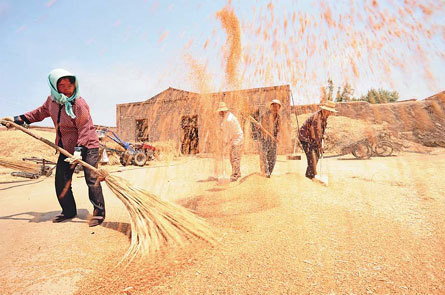They are neither food writers nor reporters covering the agricultural sector.
But many say they are particularly interested in how people in other countries eat.


Reports from the Western media on the global food situation, of developing countries not "eating responsibly", have been raising the ire of Chinese and other experts, who have provided statistics to refute such claims.
A recent argument from the West claims that developing nations are consuming more food and driving up grain prices.
China and India, as the two most populous developing countries, have borne the brunt of these attacks.
But official statistics and independent analysis have shown that Chinese demand has not affected global food prices, experts have said.
They say that the allegations from the West contain three fallacies:
China's grain demand has not directly affected the global market, because most of its supply is domestic.
Although the Chinese have been eating more meat, they have also been eating less grain.
As meat consumption in China is on the rise, the nation's consumption of vegetables has also gone up, illustrating a trend that many of the country's critics have been ignoring.
Self-reliance
While the Chinese people have consumed more grain consisting mostly of rice, wheat and corn, experts have said the country has remained more than 90 percent dependent on domestic supply these past years.
For the last five years, its dependence on domestic supplies has been above 95 percent, figures from the National Bureau of Statistics (NBS) have showed.


That means China relies on imports for only a fraction of its total grain consumption, no matter how much more it "eats", experts said.
As early as the 1980s, when the rural cottage industry started to flourish in China, Dwight Perkins, a Harvard professor on Chinese economy and agriculture, told his Chinese audience that the country could never afford to follow the development strategy of Japan and South Korea.
Industry took off in both countries when the two countries' grain output declined, Perkins had maintained. In the end, it declined so much that both countries had to become net grain importers.
With its immense population and demand, China cannot afford a similar change, Perkins had said. The global grain market cannot afford to have such a large nation depend on it for most of its supplies, he told China Daily then.
In its pursuit of market-oriented reform, China has thus had no choice but to try and maintain a considerable level of self-reliance on grain, while introducing more market forces into its economy.